As a parent, nothing stings more than seeing someone scold your child—whether it’s a teacher, a stranger, a relative, or even another parent. It can be challenging to know how to react in the moment without escalating the situation or undermining your child’s confidence. Should you defend your child immediately, or is there a better way to handle it?
This comprehensive guide will help you navigate such scenarios with confidence. We’ll explore how to address the situation appropriately while reinforcing your child’s sense of security and teaching them valuable life lessons.
Acknowledge Your Presence and Take Control of the Situation
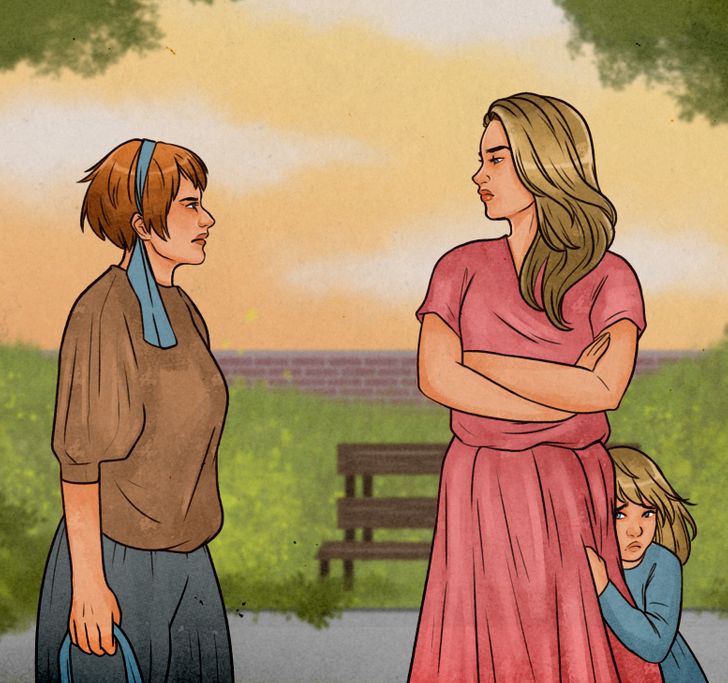
One of the first things you need to do when someone scolds your child is to make your presence known. This ensures that the person is aware you are observing the interaction and can respond accordingly.
Why This Matters:
- It prevents the situation from escalating further.
- It signals to the other person that your child is not alone.
- It reassures your child that you are there to support them.
How to Do It:
- Approach calmly and stand next to your child.
- Make eye contact with the person speaking to establish your presence.
- Use a neutral but firm tone if you need to interject.
Example Response: “Excuse me, I’d like to understand what’s going on here.”
Taking control early helps ensure that the discussion remains respectful and fair.
Assess the Situation Before Reacting
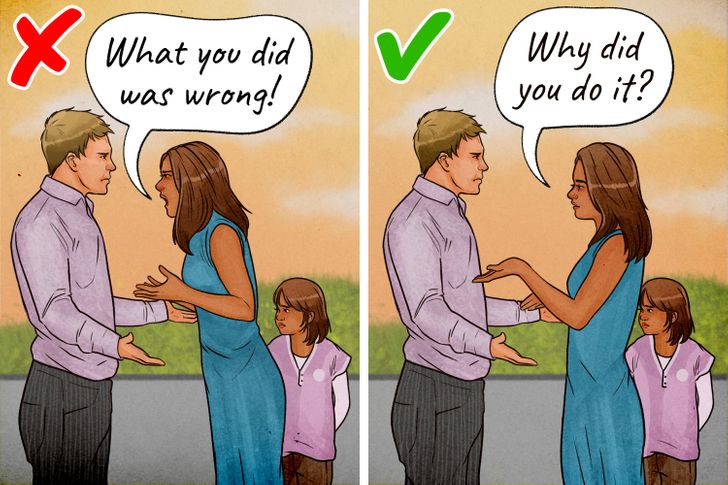
Before jumping to conclusions, it’s important to assess the situation objectively. Not every instance of scolding is unjustified—sometimes, it can be a teaching moment.
Questions to Consider:
- Was your child misbehaving or breaking a rule?
- Did the other person overreact?
- Was there a misunderstanding?
Steps to Take:
- Stay Calm: Take a deep breath before responding emotionally.
- Observe Your Child’s Reaction: Are they scared, confused, or indifferent?
- Gather Information: Politely ask the other person for clarification.
Example Response: “I’d like to hear both sides of the story. What happened?”
By assessing the situation first, you avoid unnecessary conflicts and ensure that your response is appropriate.
Make Your Child Feel Heard and Understood
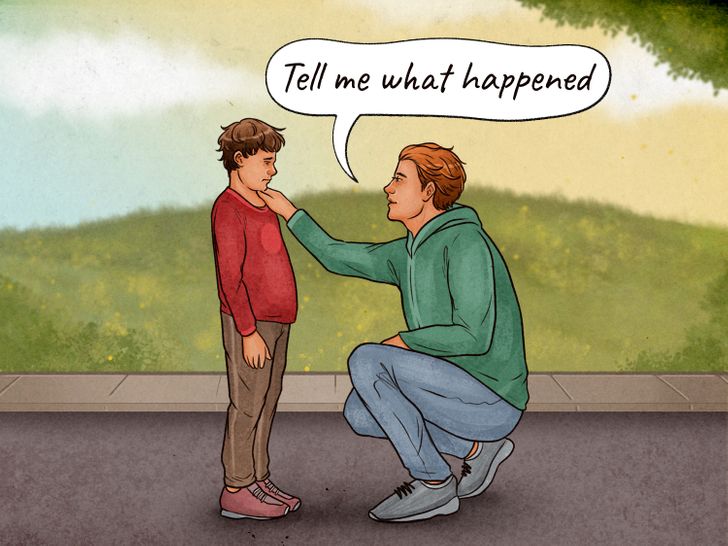
Your child’s feelings are valid, regardless of the situation. Even if they were in the wrong, they need to know that you are there to guide and support them.
Why This Is Important:
- It strengthens your child’s trust in you.
- It teaches emotional intelligence by acknowledging their feelings.
- It helps them process what just happened.
How to Do It:
- Get down to your child’s level and maintain eye contact.
- Use a calm and reassuring tone.
- Ask them how they feel about the situation.
Example Response: “I can see that this upset you. Do you want to talk about it?”
By validating their emotions, you help your child develop confidence in handling difficult situations.
Be Direct When Addressing the Other Person
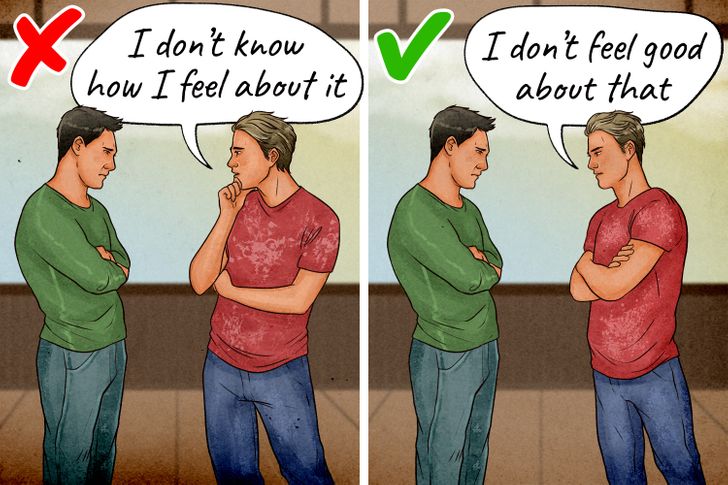
If the scolding was harsh, unnecessary, or unfair, you need to address the person directly but respectfully.
How to Communicate Effectively:
- Remain Calm: Avoid raising your voice or being aggressive.
- Use “I” Statements: Focus on how the situation affected you and your child.
- Set Boundaries: Make it clear that you won’t tolerate excessive discipline from others.
Example Responses:
- “I appreciate that you were trying to help, but I prefer to handle discipline myself.”
- “I understand that my child may have made a mistake, but I’d like to be the one to address it with them.”
Being direct ensures that your authority as a parent is respected while keeping the conversation constructive.
Use Humor to Diffuse the Situation (When Appropriate)
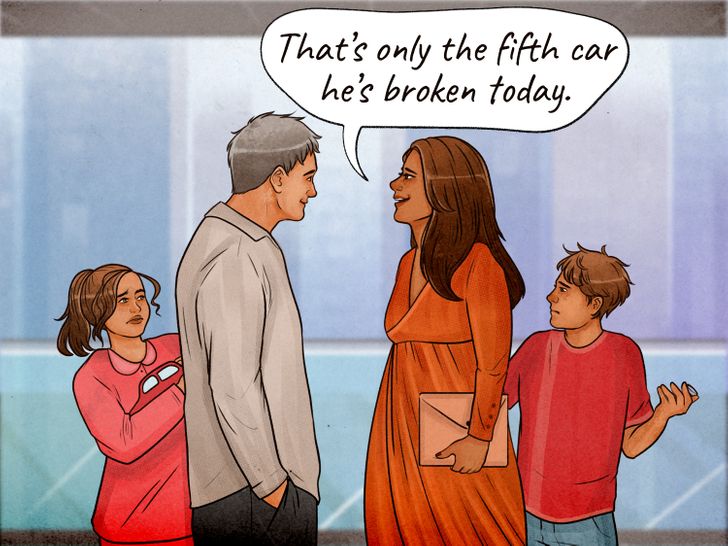
Not every situation requires confrontation. Sometimes, humor can be a powerful tool to diffuse tension and redirect attention.
Why Humor Works:
- It lightens the mood and reduces hostility.
- It prevents unnecessary arguments.
- It models positive social skills for your child.
When to Use Humor:
- If the situation is minor or accidental.
- If the person scolding your child is someone you have a friendly relationship with.
- If your child is visibly upset and could use some reassurance.
Example Response: “Wow, my kid’s getting free life lessons today! Should I take notes?”
Using humor strategically can prevent conflict while keeping interactions lighthearted.
Set Firm Boundaries and Advocate for Your Child
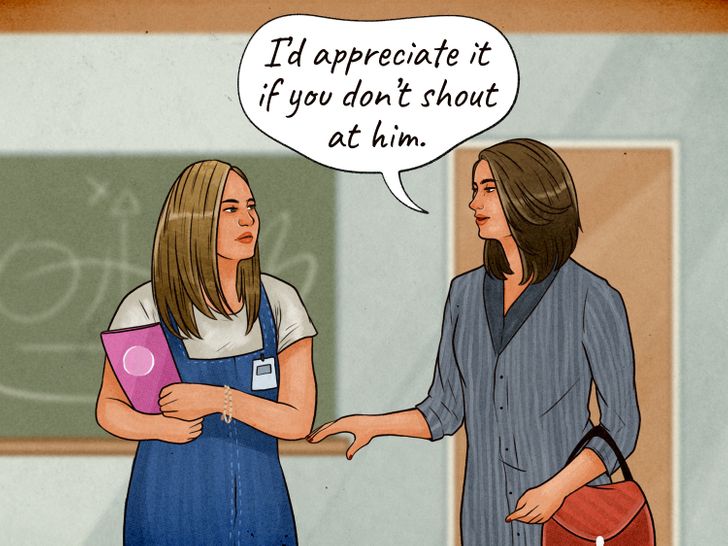
As a parent, it’s crucial to establish boundaries when it comes to how others treat your child. While constructive criticism is beneficial, excessive or inappropriate scolding is not acceptable.
How to Set Boundaries:
- Express Your Expectations Clearly: Let others know what is and isn’t acceptable when addressing your child.
- Be Consistent: If someone repeatedly crosses the line, reinforce your boundaries firmly.
- Teach Your Child Self-Advocacy: Encourage them to speak up for themselves respectfully.
Example Response: “I understand you meant well, but please speak to me if you have concerns about my child’s behavior.”
If necessary, remove your child from the situation and address the issue later in private.
When to Take Further Action
While most situations can be resolved calmly, there are instances where further action may be necessary:
- If the person is repeatedly harsh or abusive.
- If your child’s self-esteem is negatively affected.
- If the incident occurs in school or daycare, requiring administrative intervention.
In extreme cases, reporting the incident to school authorities or seeking professional guidance may be necessary to protect your child’s emotional well-being.
Final Thoughts: Teaching Your Child to Navigate Life’s Challenges
How you handle situations where someone scolds your child sets an important example for them. By staying calm, assessing the situation, and responding thoughtfully, you teach your child:
- How to manage conflicts effectively.
- How to stand up for themselves respectfully.
- How to recognize when someone’s criticism is constructive versus inappropriate.
At the end of the day, your role as a parent is to protect, guide, and empower your child. Ensuring they feel safe, valued, and supported will help them develop into confident and emotionally resilient individuals.
For further reading on effective parenting techniques, check out Psychology Today’s guide on child discipline.
By implementing these strategies, you can handle any situation with confidence and ensure your child grows up feeling secure in their relationship with you.



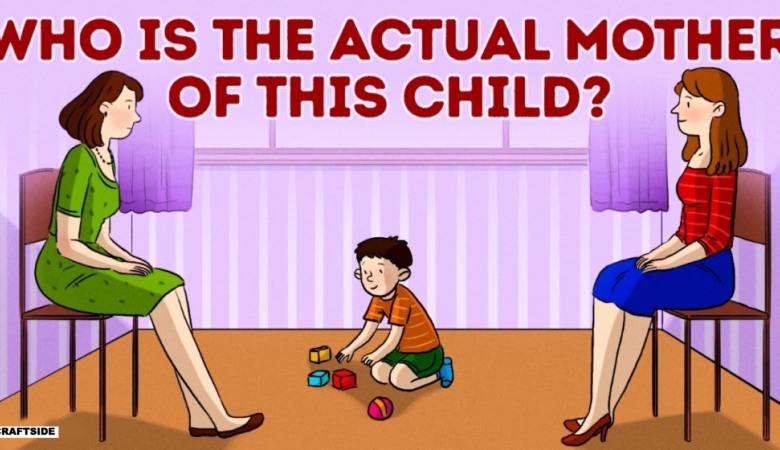





Leave a Reply